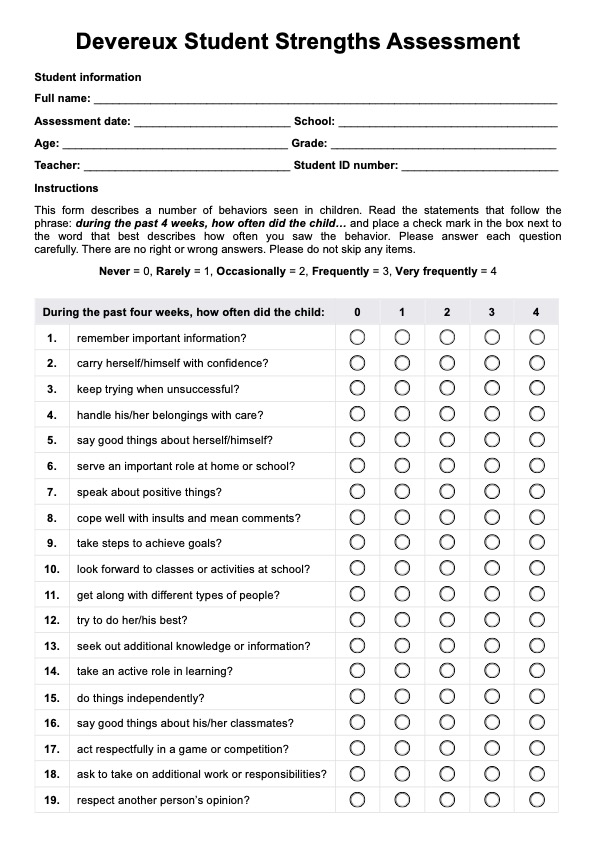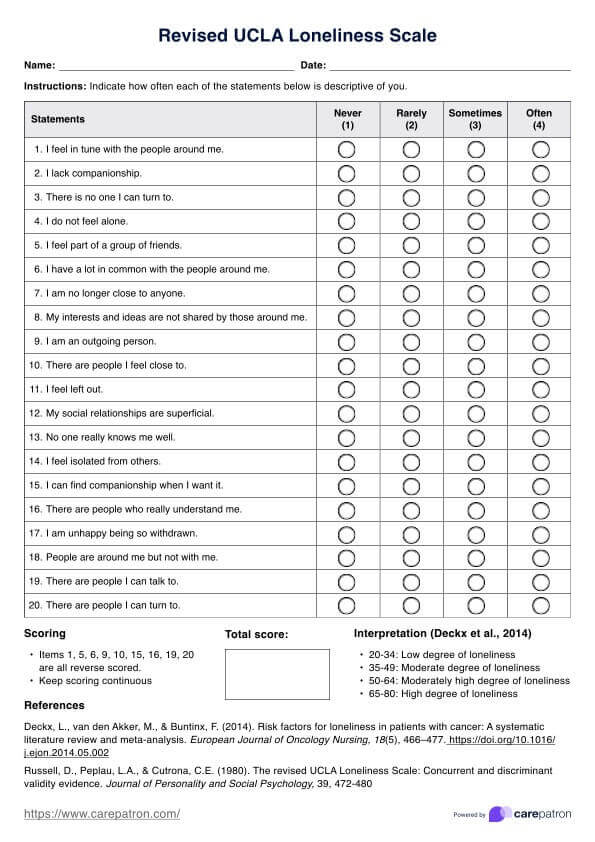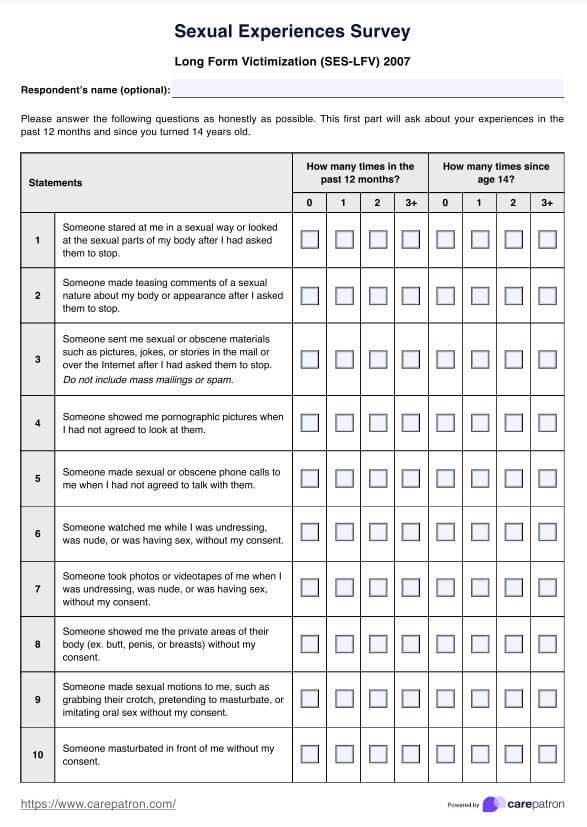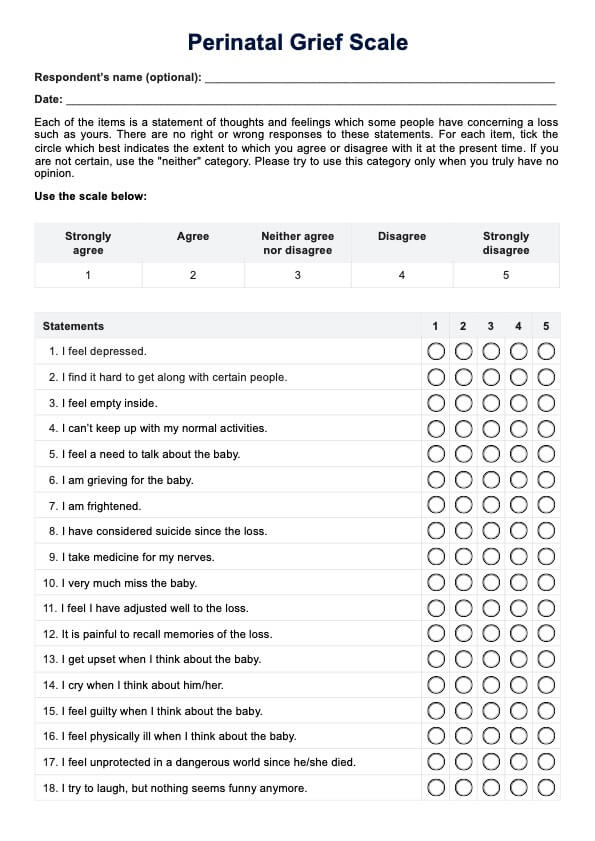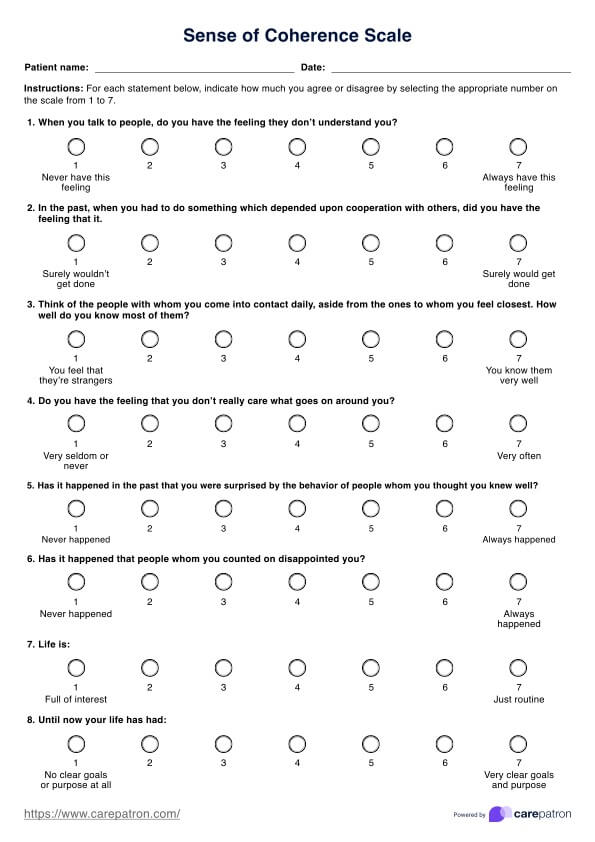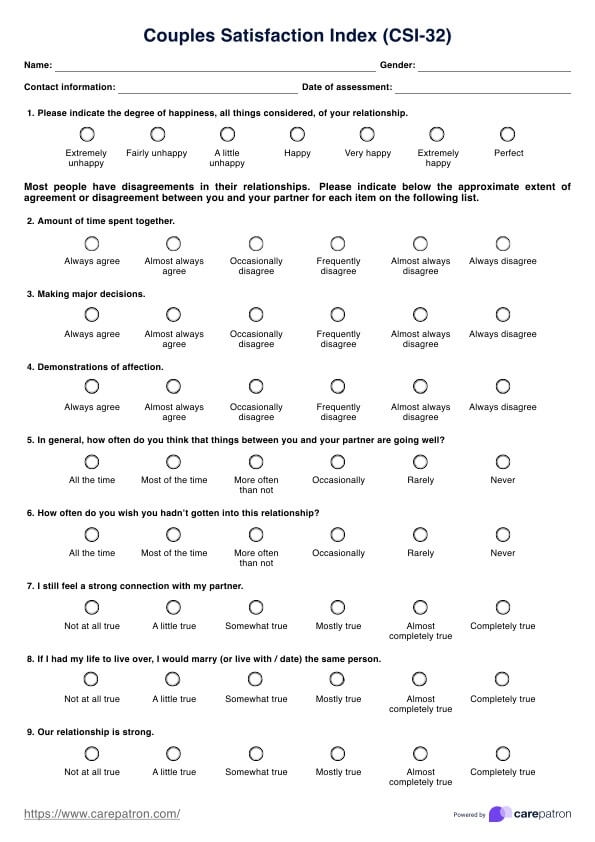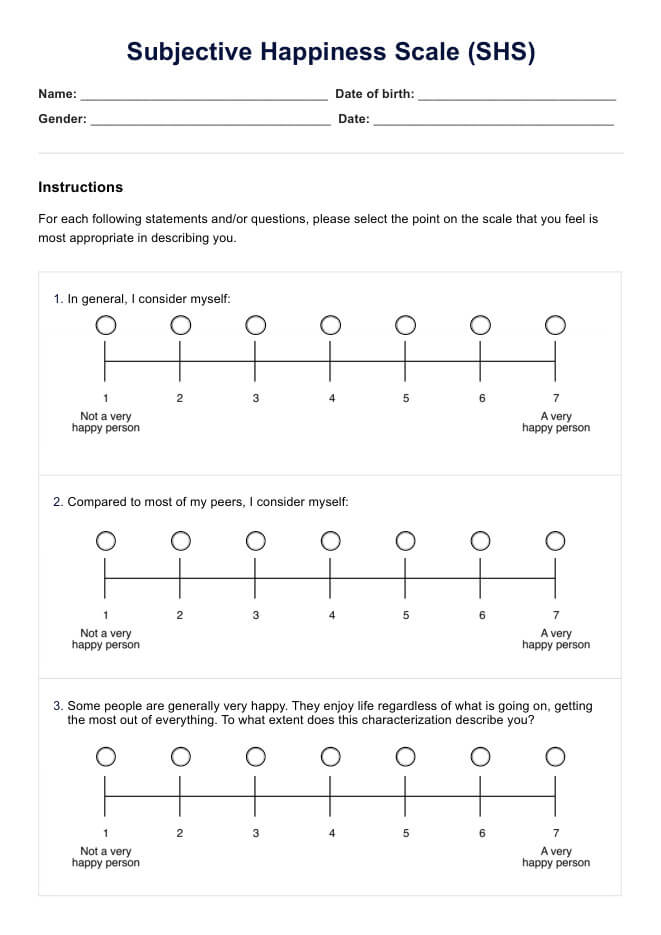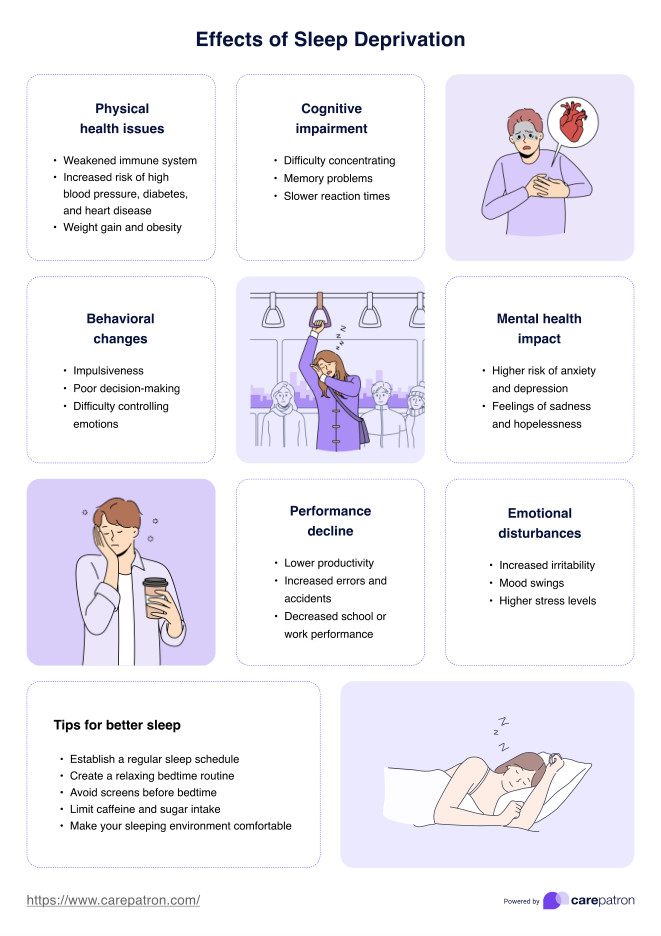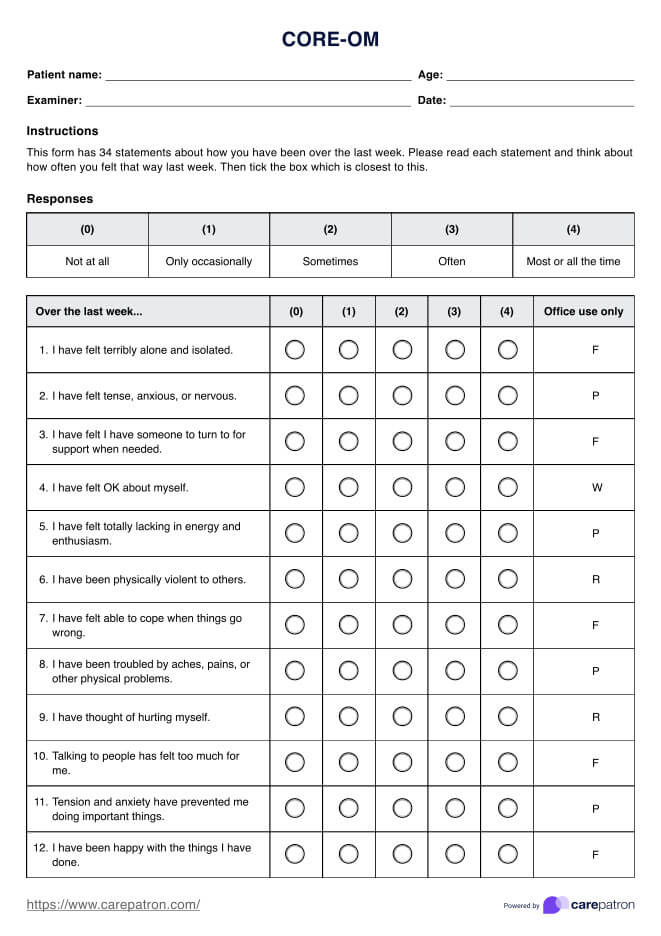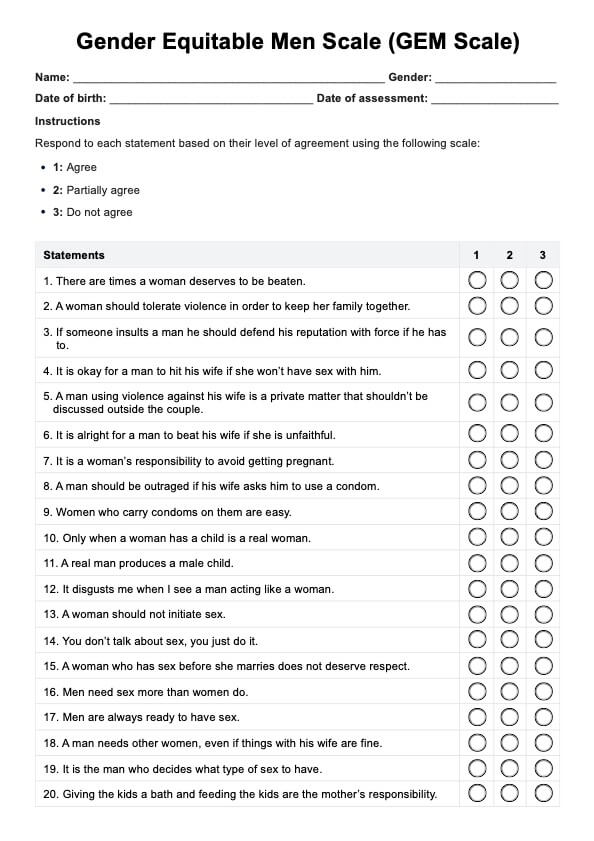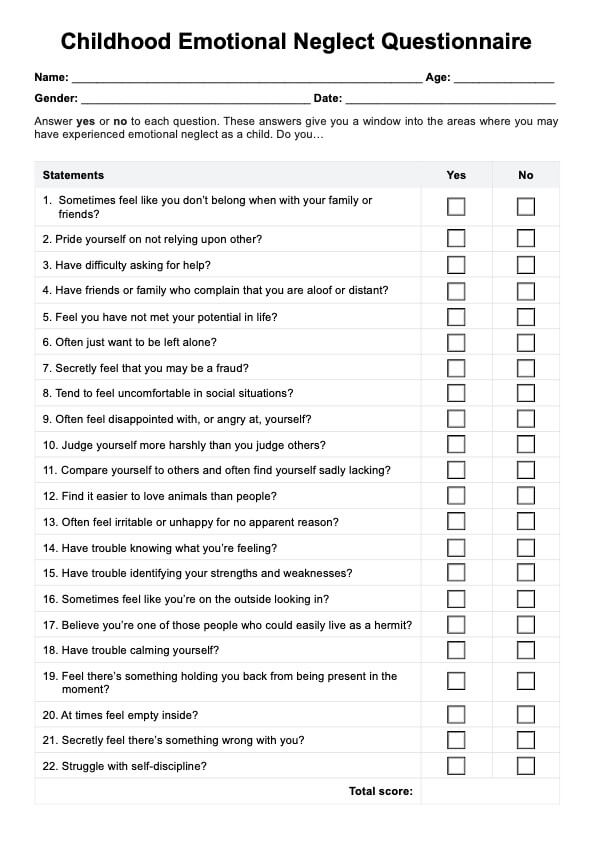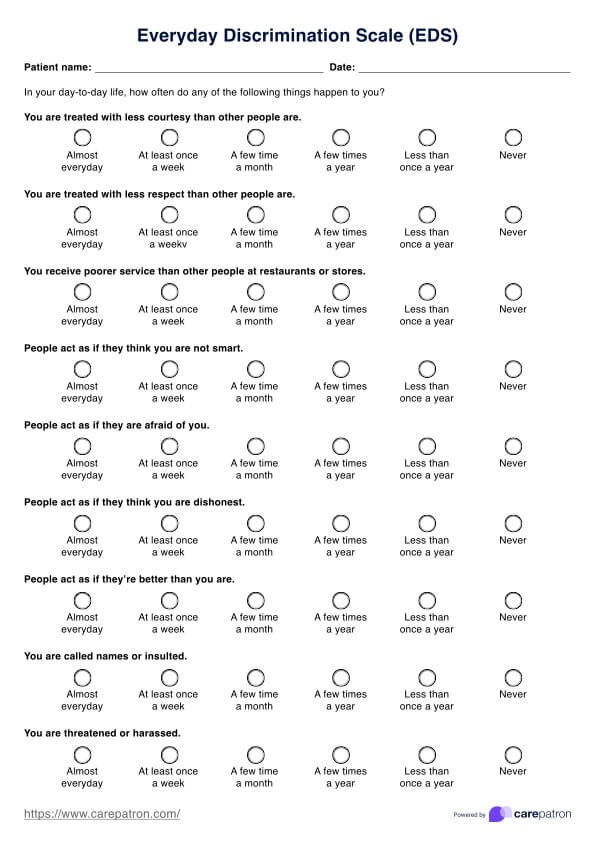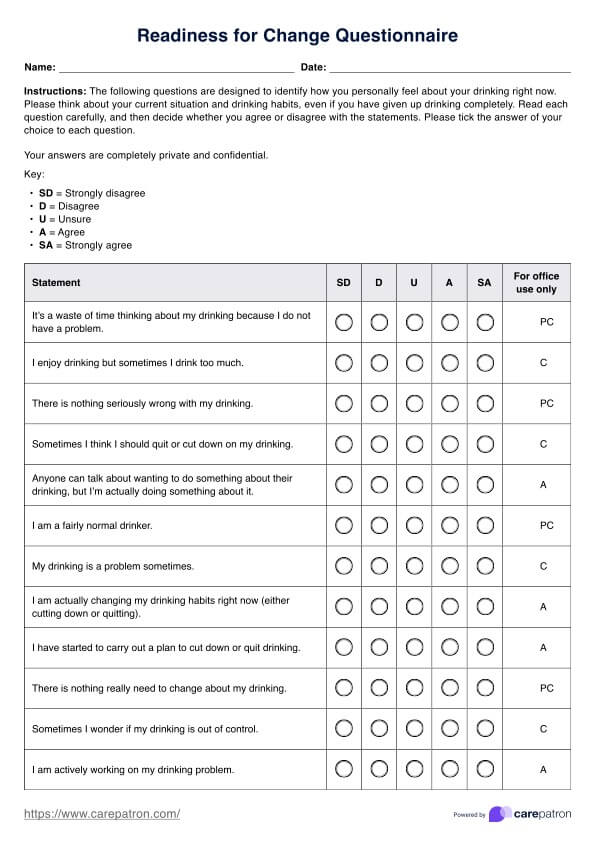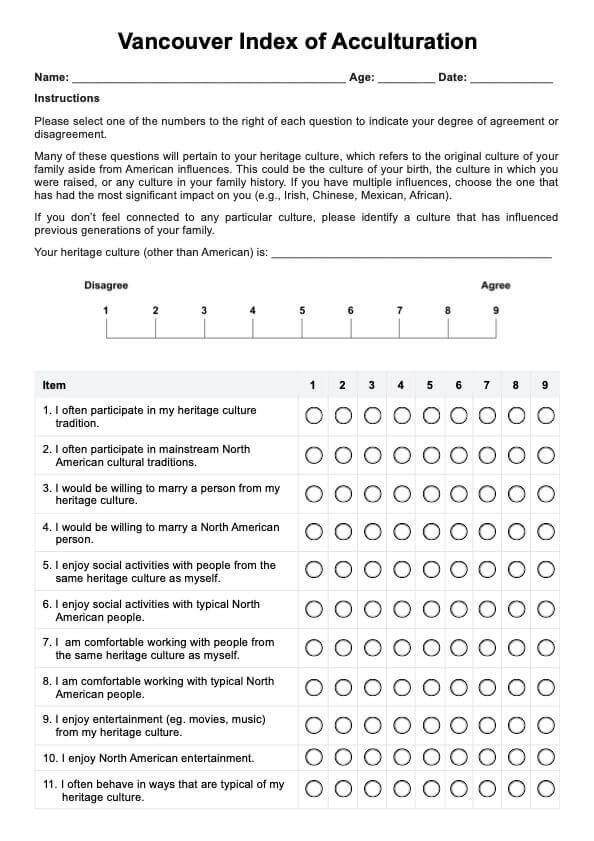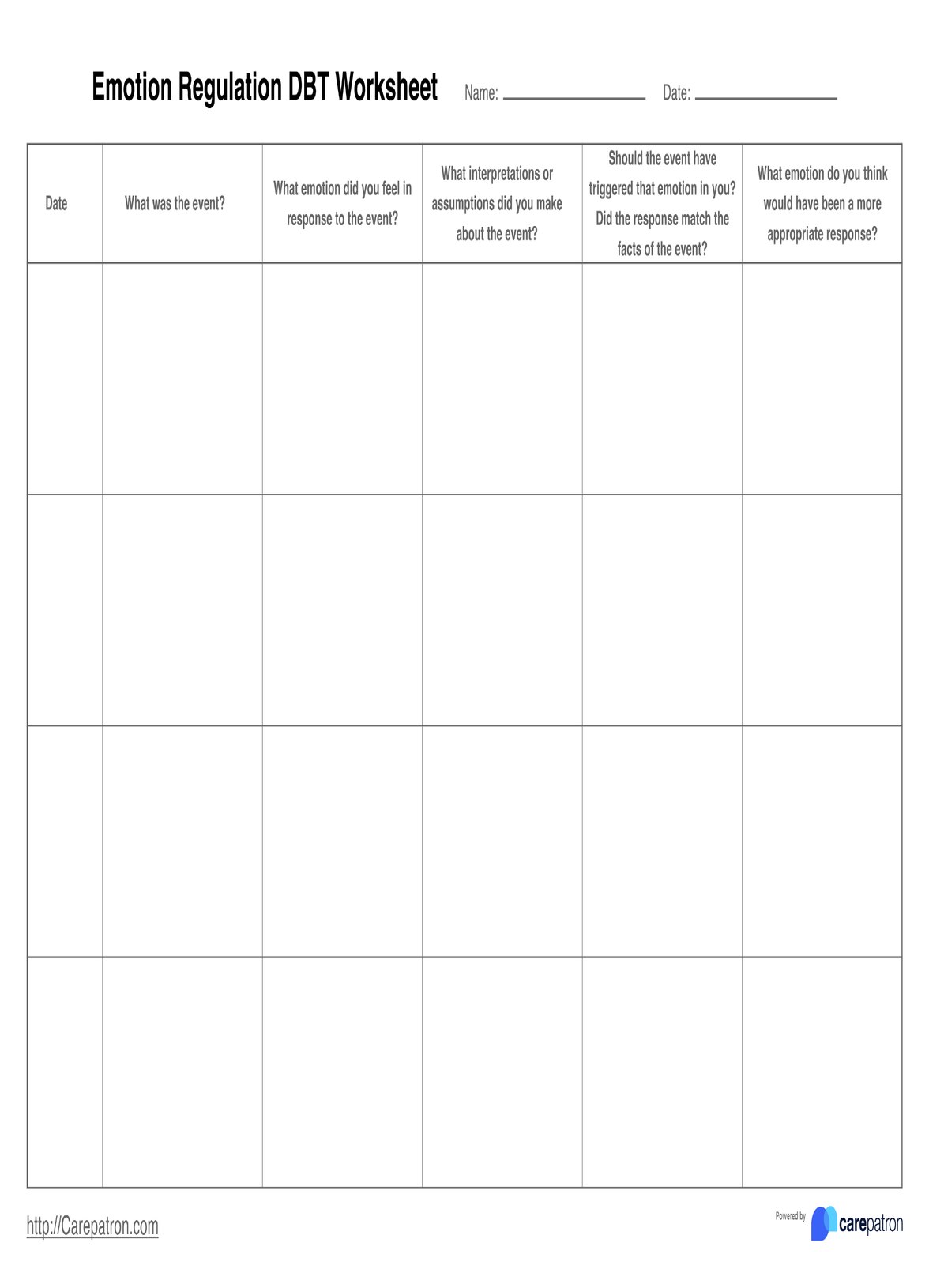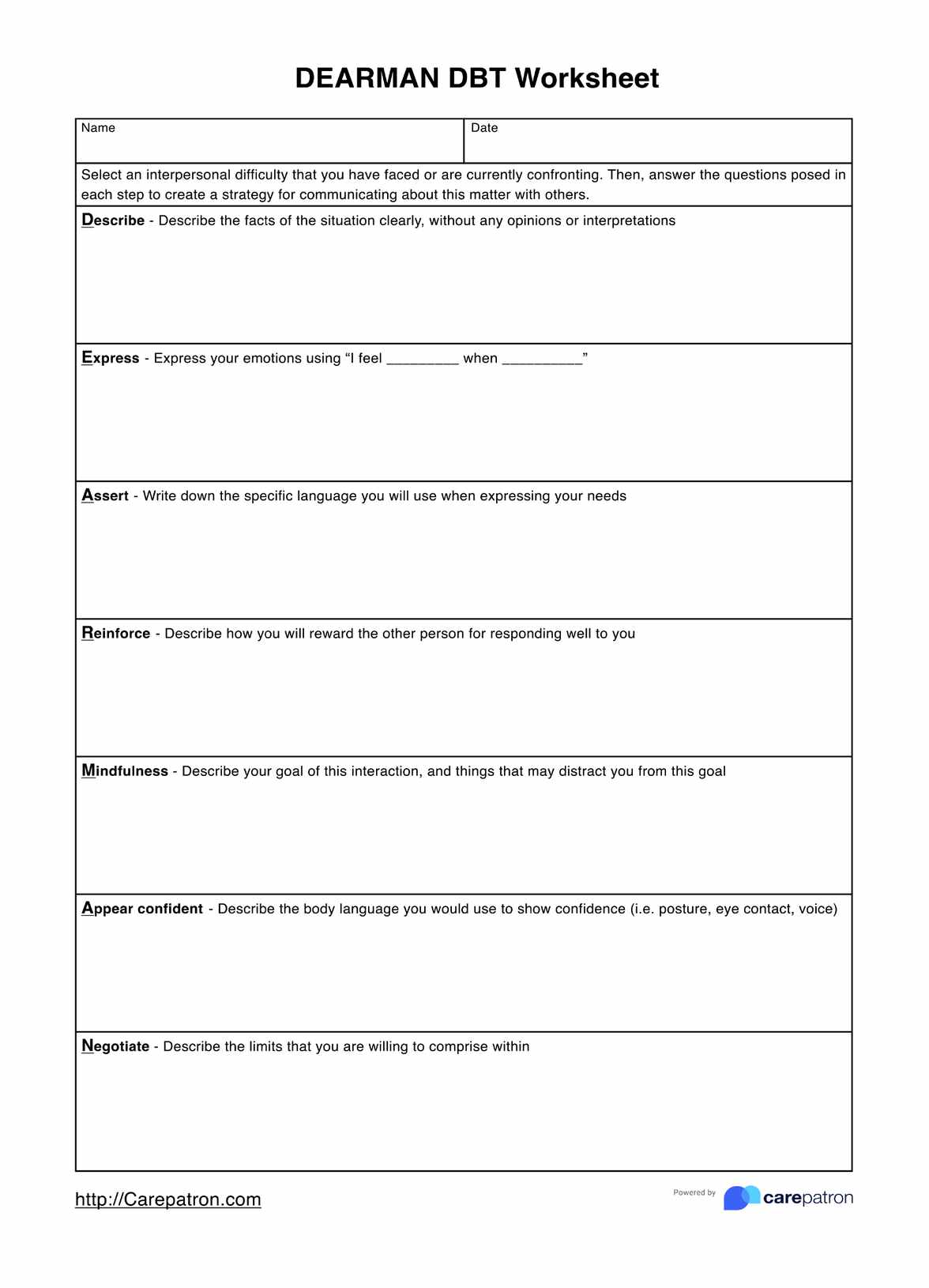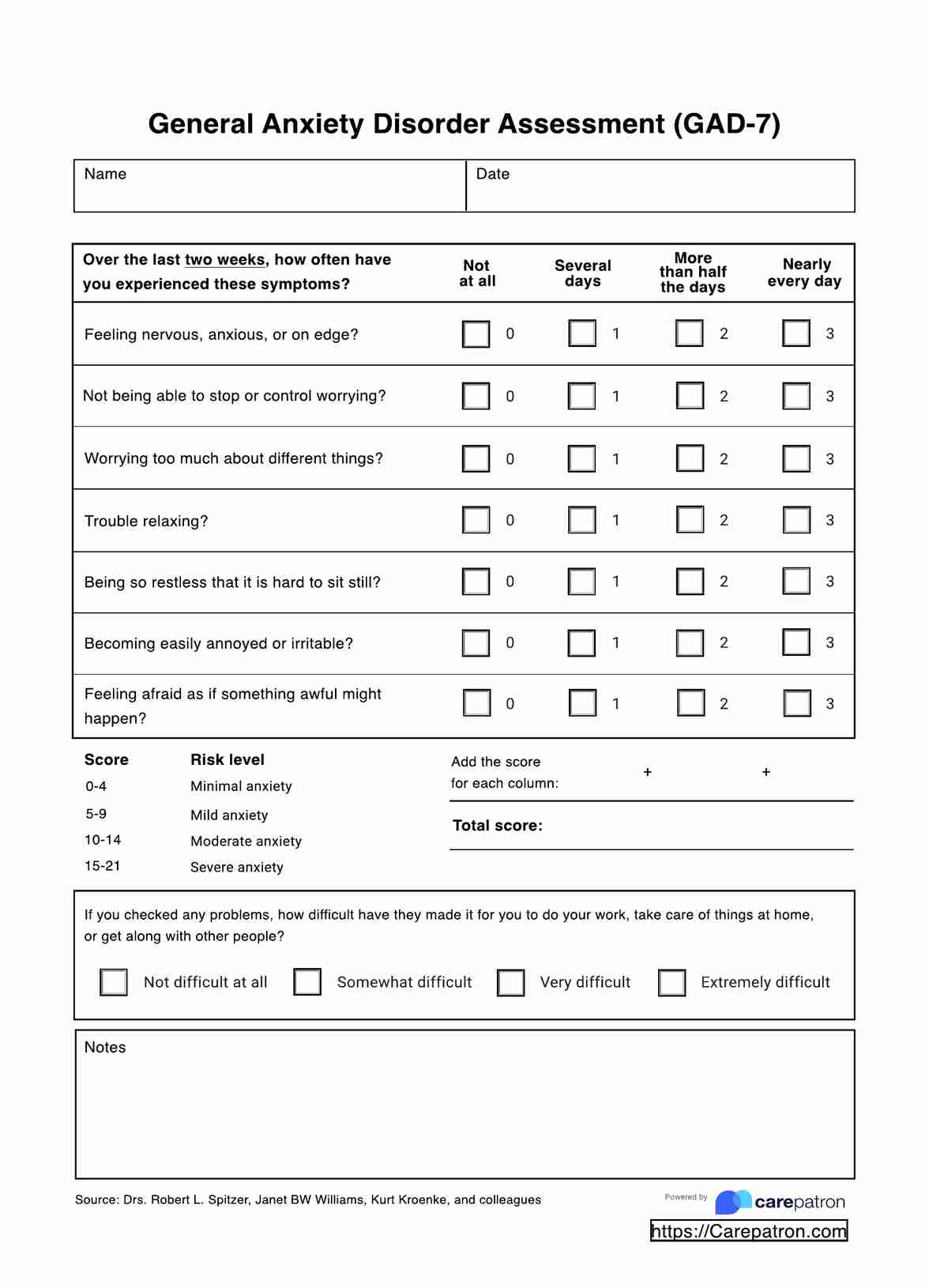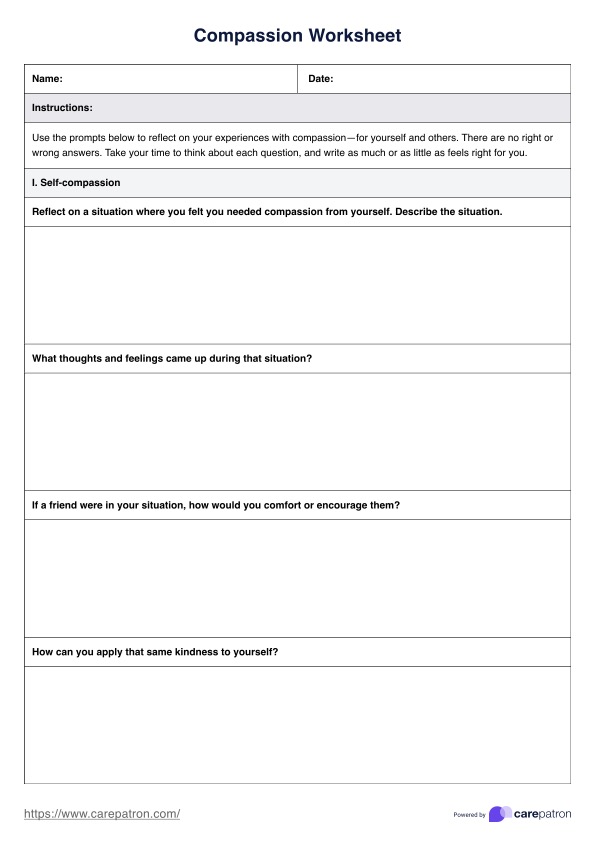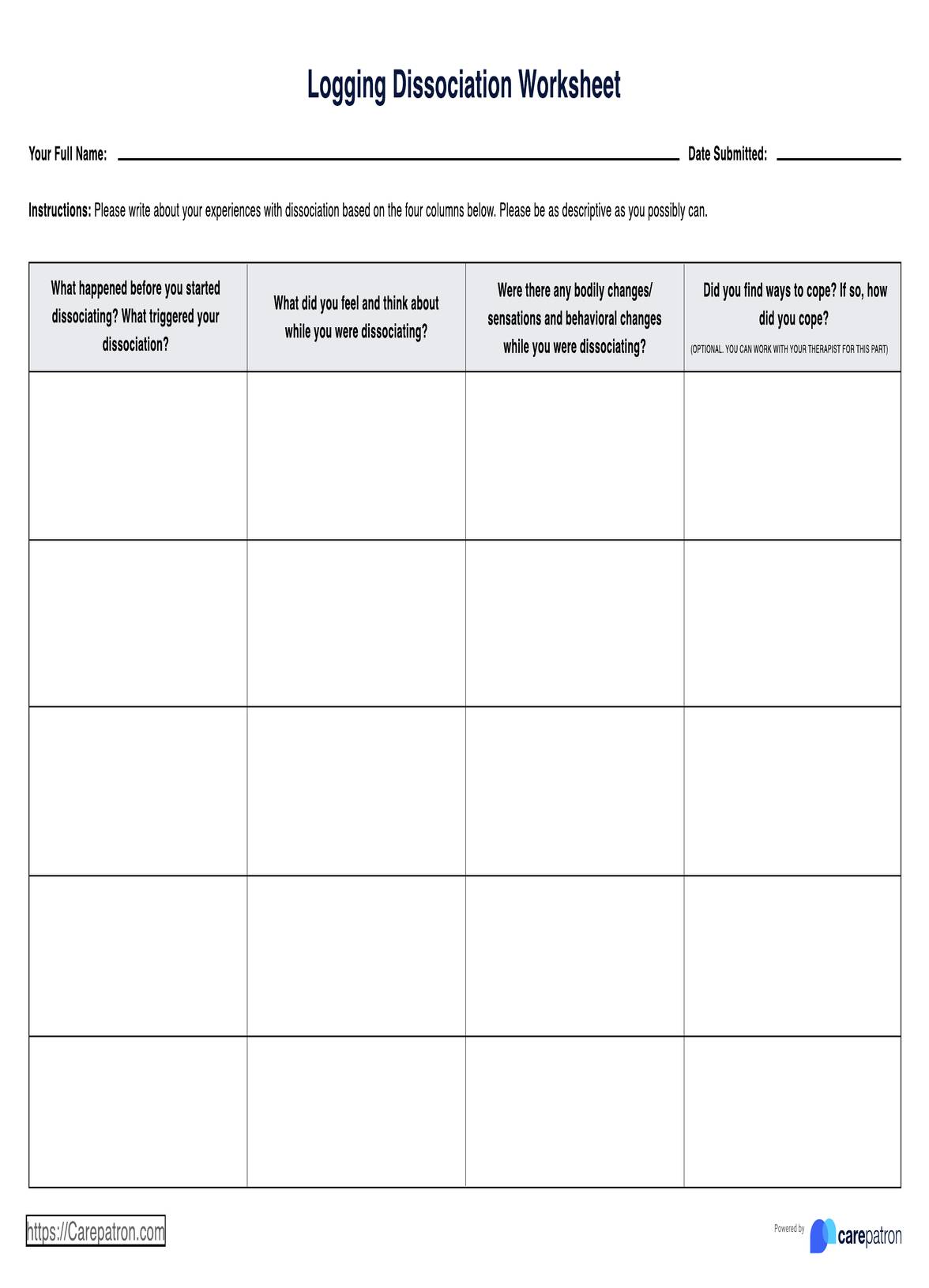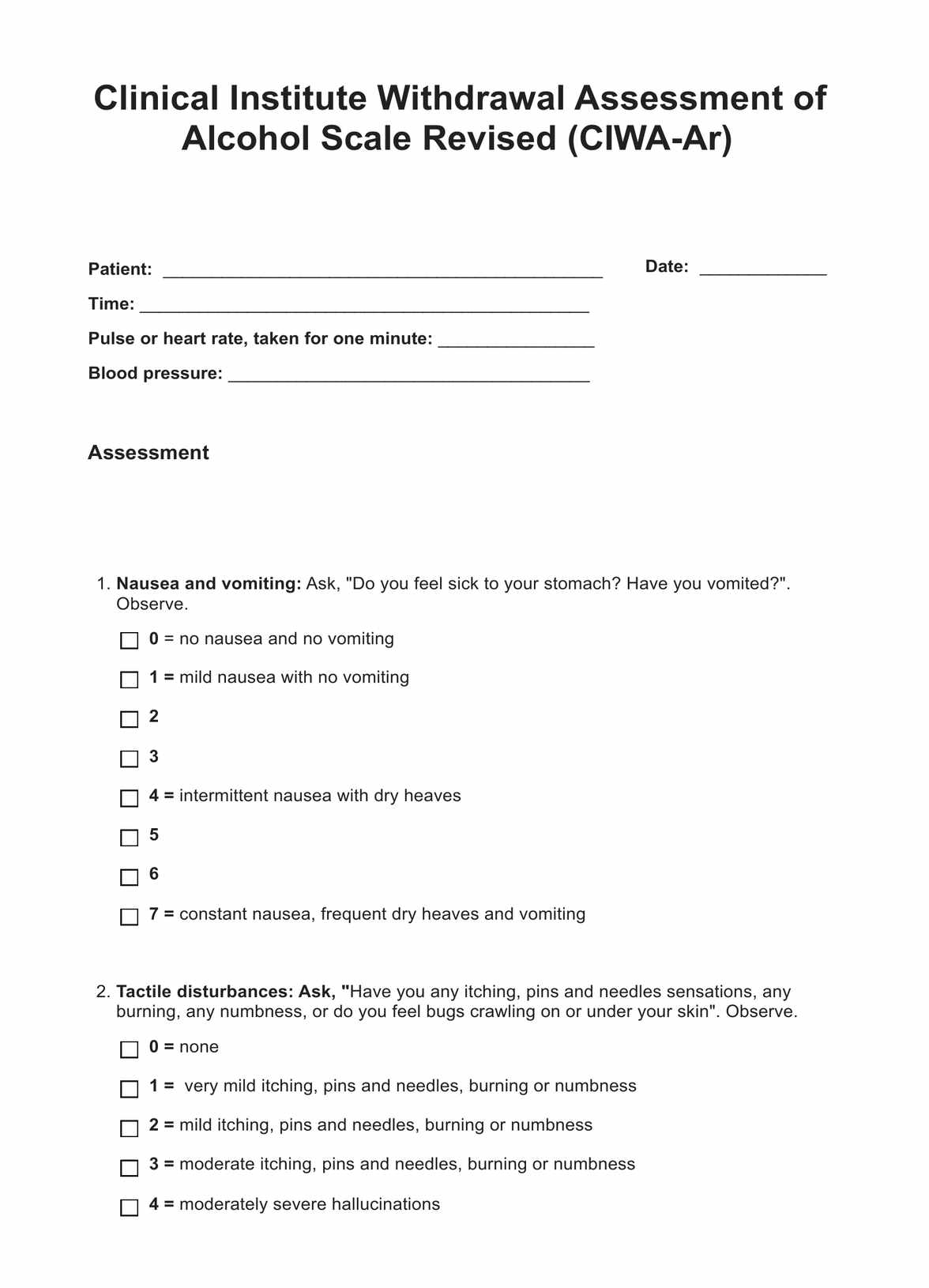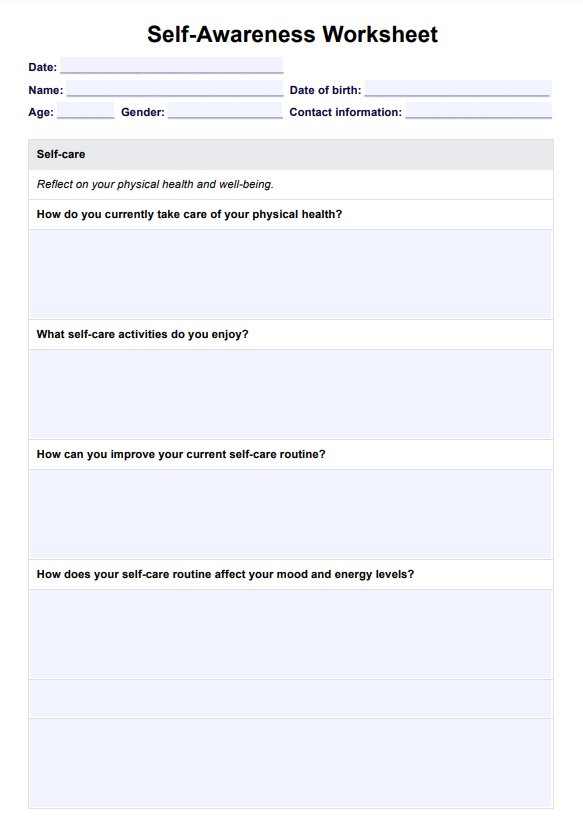School Refusal Assessment Scale
Discover the benefits of using Carepatron’s School Refusal Assessment Scale (SRAS-R) — a trusted tool for identifying & addressing school refusal behavior.


What is a School Refusal Assessment Scale (SRAS-R)?
The is a comprehensive assessment instrument employed by mental health professionals to determine the specific underlying causes prompting a child's refusal to attend school.
The SRAS-R is based on a functional model of school refusal, categorizing the triggers into four primary categories — avoidance of school-related stimuli that provoke negative affectivity, escape from social or evaluative situations causing distress, pursuit of attention from significant individuals such as parents or caregivers, and desire for tangible reinforcement outside of the school environment.
This carefully structured model aids in delineating interventions tailored to address diverse types of school refusal behavior. Comprising 24 items, the SRAS-R is typically administered through a joint parent and child report. It ensures a comprehensive understanding of the issue at hand, facilitating the identification of accurate profiles for the root causes of school refusal.
In turn, this aids in devising effective treatment strategies and interventions, enabling the child to overcome their reluctance and embrace education positively. The SRAS-R is an essential tool in the arsenal of mental health professionals, contributing significantly to the child's welfare and academic success.
School Refusal Assessment Scale Template
School Refusal Assessment Scale Example
How does it work?
The School Refusal Assessment Scale-Revised (SRAS-R) is methodical and insightful, offering a deep understanding of the underlying issues contributing to the child's reluctance to attend school. Here are the stages involved:
Distribution of SRAS-R Questionnaire
The initial step involves the distribution of the SRAS-R questionnaire to the child and the parent by the mental health professional. This questionnaire is constructed carefully and carefully, with its queries tailored to extract meaningful responses indicative of the root causes of school refusal behavior.
Completion of the SRAS-R Questionnaire
In this phase, the child and the parent independently answer the questionnaire.. Their perspectives are critical as they often provide complementary insights into the dynamics of the school refusal behavior, offering a holistic view of the problem.
Scoring the SRAS-R
Once the questionnaires are completed, the SRAS-R scoring system evaluates and scores the responses. This standardized scoring system ensures consistency and accuracy in interpreting the results, providing a reliable measure of the different functional conditions linked to the child's school refusal.
Analysis of Results
Upon scoring, the results are then analyzed. The analysis aims to identify the predominant underlying causes for the child's school refusal behavior. This step is crucial as it determines the direction for the upcoming intervention planning.
Intervention Planning
Drawing upon the analysis, the mental health professional can plan targeted interventions to address the specific issues highlighted by the SRAS-R. These tailored interventions help create a safe, supportive, and conducive environment that encourages the child to return to school.
To facilitate your understanding and usage of the SRAS-R, you can download our printable School Refusal Assessment Scales here. It's a user-friendly resource designed to help professionals and parents navigate the complexities of school refusal.
When would you use this Template?
The School Refusal Assessment Scale-Revised (SRAS-R) is a valuable tool in various situations and for several professionals working in child education and mental health domains. Here are specific instances when this tool can prove particularly useful:
When a child exhibits consistent patterns of school refusal, such as:
- Persistent tardiness
- Frequent unexplained absences
- Regular complaints of illness to avoid school
- Manifestation of extreme distress related to school attendance
When traditional disciplinary methods fail to produce the desired change in a child's school attendance behavior.
When there's an indication that emotional or psychological factors might influence the child's school refusal behavior, not just behavioral issues.
Various professionals may find the SRAS-R instrumental in their practice:
- Psychologists: They may use the SRAS-R as part of a comprehensive diagnostic process to uncover potential mental health conditions contributing to school refusal behavior.
- School Counselors: This tool can assist in identifying students in need of targeted interventions and in formulating individualized support plans.
- Other Mental Health Professionals (Therapists and Social Workers): The SRAS-R can be employed to develop tailored interventions addressing specific causes of school refusal. It can also be used to monitor the progress of these interventions, facilitating necessary adjustments to treatment plans.
- Educational Consultants: These professionals can use the SRAS-R when collaborating with schools to devise broad strategies for managing school refusal at an institutional level.
The School Refusal Assessment Scale-Revised is a powerful tool for understanding and addressing school refusal behavior in a targeted and effective way.
Benefits
Comprehensive Understanding
The SRAS-R provides a detailed understanding of the reasons for school refusal behavior.
Targeted Interventions
The tool helps develop specific, targeted interventions based on the child's needs.
Easy to Use
The SRAS-R is easy to administer and requires no special training.
Reliable and Valid
The SRAS-R has proven to be a reliable and valid measure for assessing school refusal behavior.
You can download our Free School Refusal Assessment Scale to understand how it works practically.
Research & Evidence
The School Refusal Assessment Scale-Revised (SRAS-R) is a well-researched instrument supported by extensive empirical evidence attesting to its utility and effectiveness in assessing and managing school refusal behavior. The tool is founded on a functional model of school refusal, a concept that enjoys broad acceptance within the psychological community.
The roots of this functional model date back to 1990, when psychologists Christopher A. Kearney and Wendy Silverman proposed it. This model revolutionized the way professionals understood and approached school refusal behavior. Instead of viewing school refusal as a singular behavior, Kearney and Silverman's model presented it as a multifaceted issue underpinned by distinct functional conditions. This perspective allowed for a more nuanced and targeted approach to treatment and management.
Since introducing this functional model and the consequent development of the SRAS-R, many studies have been conducted to test its reliability and validity. These studies have consistently supported the SRAS-R, affirming its reliability in assessing the root causes of school refusal behavior. The scale's ability to capture a broad spectrum of reasons for school refusal behavior and its applicability to different age groups have also been validated.
Furthermore, research has demonstrated the SRAS-R's effectiveness in assisting treatment planning. By identifying the specific function or functions underpinning a child's school refusal, the SRAS-R aids professionals in tailoring interventions to the unique needs of each case, thus enhancing the likelihood of successful outcomes.
The SRAS-R, with its rich research background and proven track record, stands as an invaluable tool for mental health professionals and educators in addressing and managing school refusal behavior.
Commonly asked questions
Mental health professionals, school psychologists, and counselors commonly use the School Refusal Assessment Scale.
The SRAS-R is used when a child exhibits persistent school refusal or avoidance patterns.
The SRAS-R is used by administering a questionnaire to both the child and the parent, scoring the responses, analyzing the scores, and then planning interventions based on the results.

.jpg)
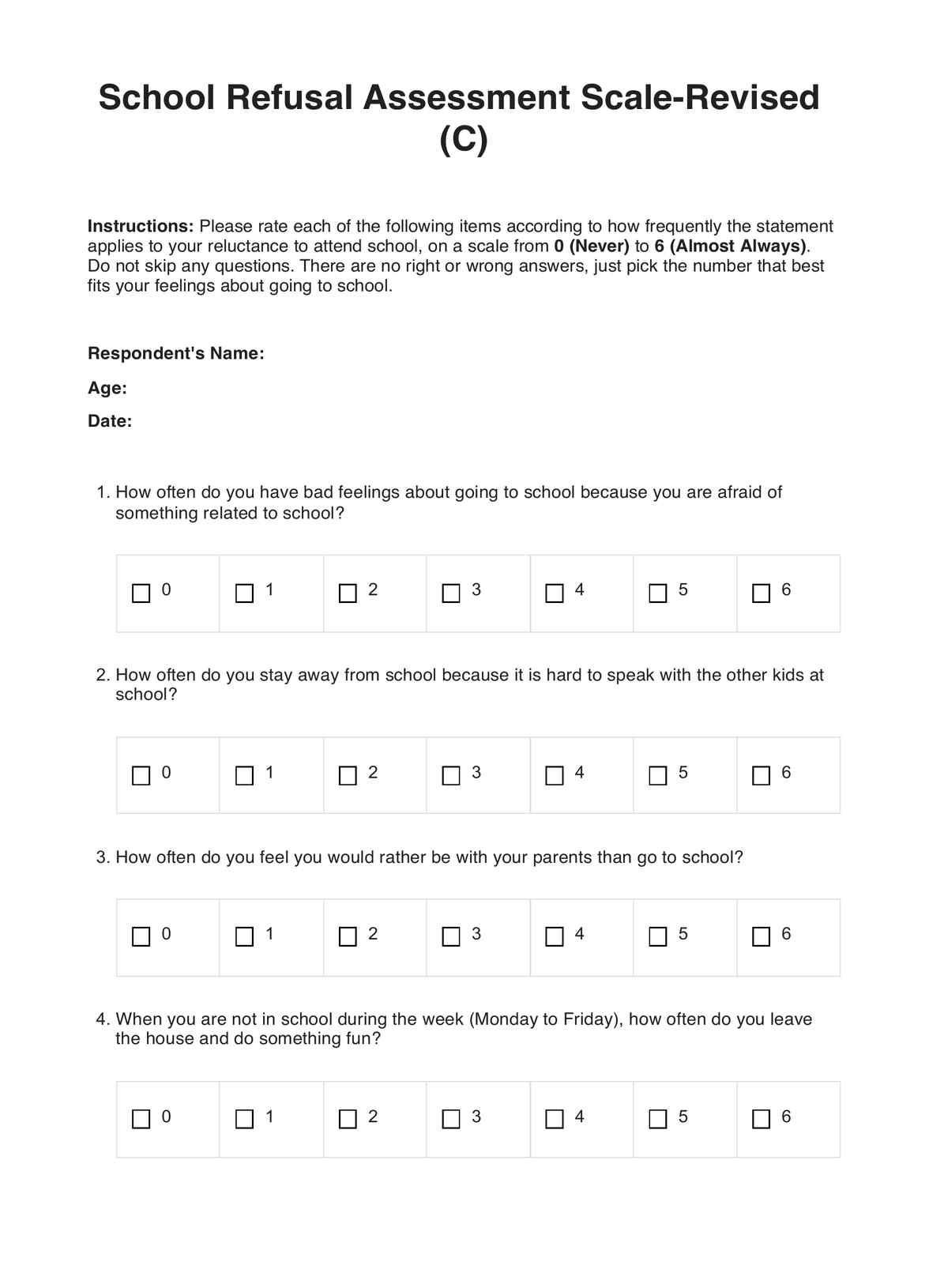
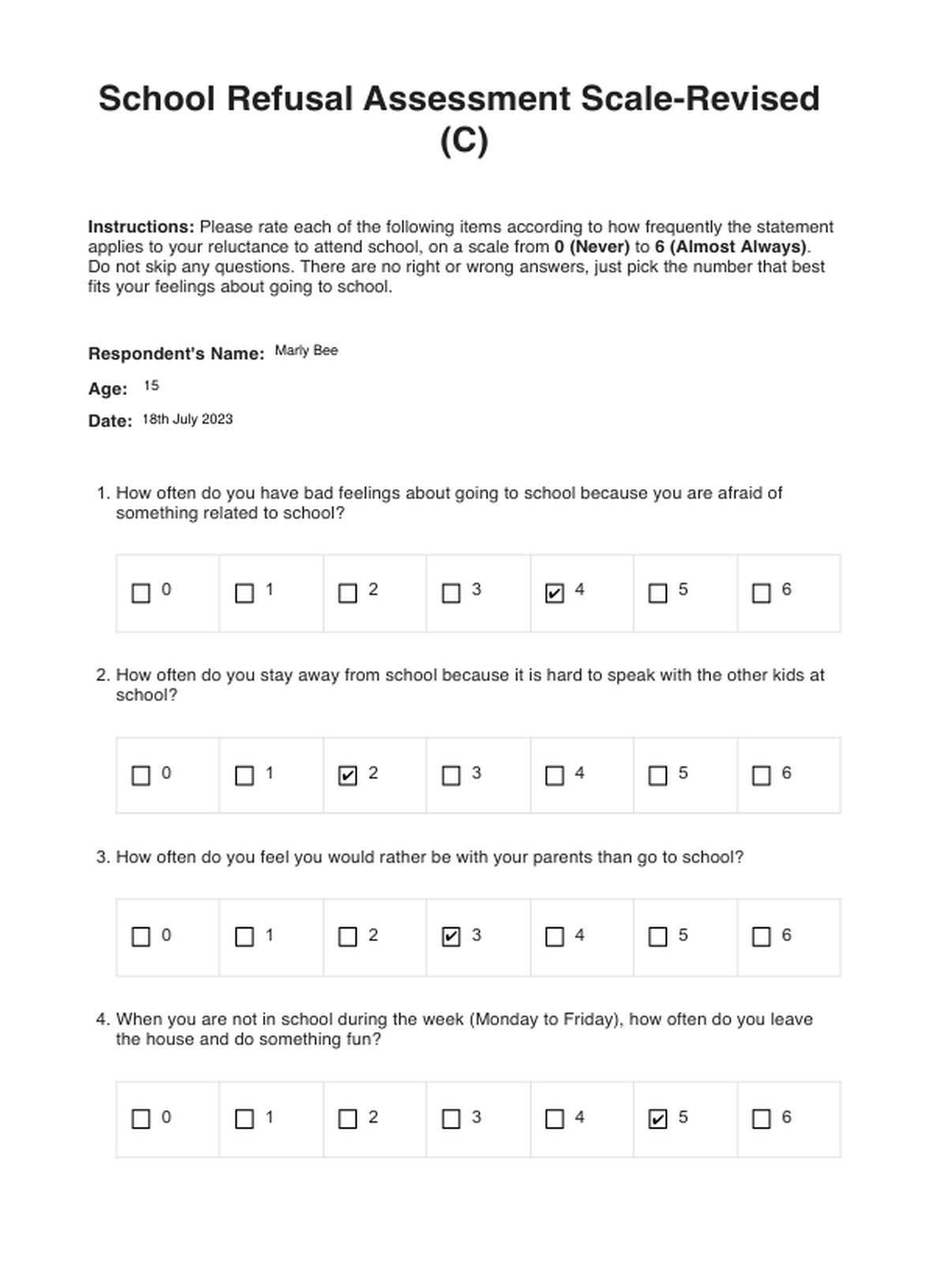

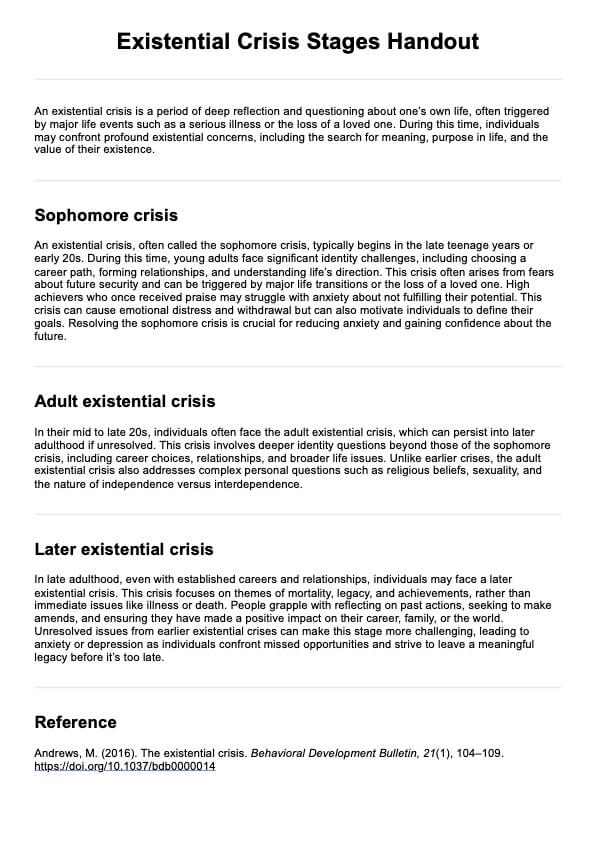
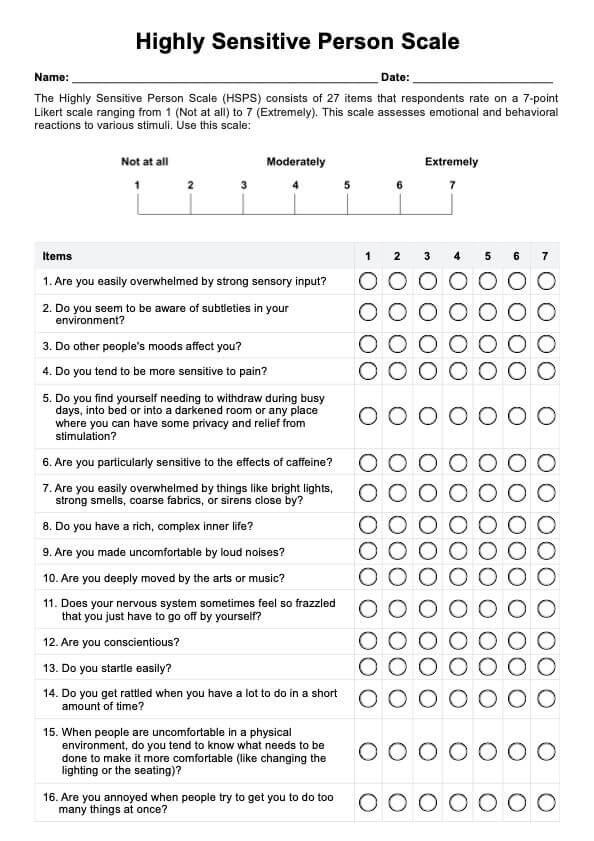










-template.jpg)




















